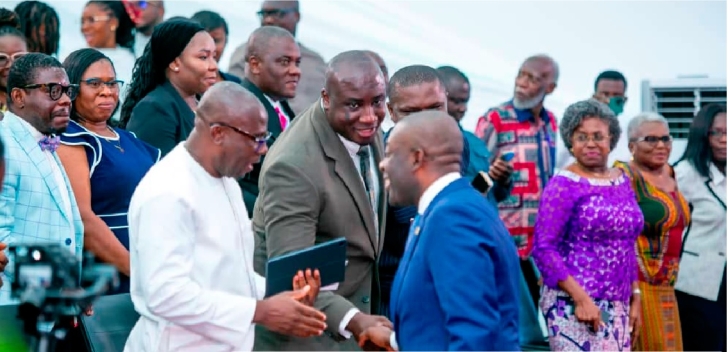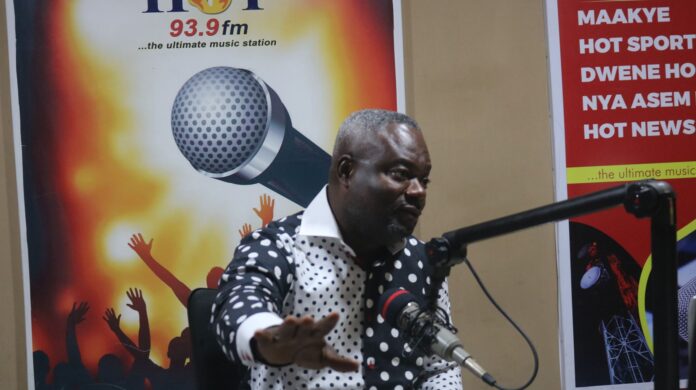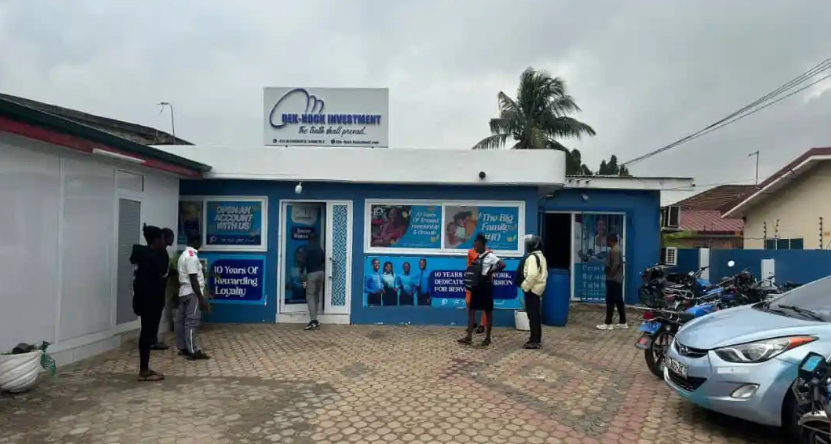The Minister of Information, Kojo Oppong Nkrumah, has decried the level of misinformation and disinformation in the country, saying they had the potential to destroy the nation’s enviable democracy.
He said it was alarming that the media had increasingly become susceptible, conveying such information to their wide audiences, a situation which the minister added, was gradually doing more harm than good to the country.
“Even more worrying is how a few political actors on both sides are also increasingly guilty of misinformation and disinformation,” Mr Oppong Nkrumah said.
This was contained in a lecture the minister delivered at the Faculty of Law of the Ghana Institute of Management and Public Administration (GIMPA) in Accra yesterday.
The lecture was the highlight of the launch of the GIMPA Law Alumni Association.
The minister, who is an alumnus of GIMPA Law, spoke on the topic: “A Legal Framework for Communicating Governance”.
It was attended by the Minister of Tourism, Arts and Culture, Dr Ibrahim Mohammed Awal; the Minister of Youth and Sports, Mustapha Ussif; the Chairman of the National Media Commission (NMC), Yaw Boadu-Ayeboafoh; a former Minister of State for Tertiary Education and former Editor of the Daily Graphic, Elizabeth Ohene; a Presidential Advisor on Strategic Communications, Florence Oboshie Sai Cofie, and the President of the Ghana Journalists Association (GJA), Albert Kwabena Dwumfour.
Sincerity
Mr Oppong Nkrumah urged political communicators of the government and opposition parties to be sincere in their messages to the public.
“In this post-truth era, where faith in political leaders has been eroded, we must make an extra effort to be sincere at all times.
“Yes, sometimes we may get things wrong based on the brief we have been given, but we should never deliberately mislead the public,” he added.
The minister said to achieve effective communication, it was important to deploy all tools to achieve desired outcomes.
Inclusivity in communication, he said, involved the use of language, access and also taking into consideration those with communication disabilities.
“Inclusivity is not a matter we have approached over the decades with full attention.
Apart from a sign language interpretation in Parliament, it was only during the COVID-19 communication program that we actively focused on translations into local languages and the regular use of sign language,” the minister added.
Rationale
The Rector of GIMPA, Prof. Samuel K. Bonsu, said the rationale behind the formation of the GIMPA Law Alumni Association was to create a platform for past students of the institute to contribute to its success.
He called on all alumni of the institute to contribute to the GIMPA Endowment Fund to support the growth of the institute, as well as its students.
The Dean of GIMPA Law Faculty, Dr. Kwaku Agyeman-Budu, said the alumni body was an essential part of the institute and it intended to utilize their expertise for maximum benefit.
“We intend to leverage the wealth of knowledge, depth of experience, and diversity of networks of our alumni towards strengthening the bonds within the alumni family being birthed today while safeguarding GIMPA Law’s reputation as a beacon of excellence in legal education in the country and beyond,” he said.







